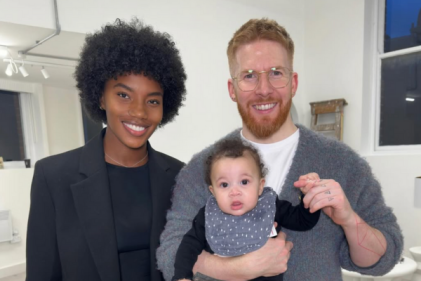
'Share your toys’ was one of the more familiar sayings growing up as a child. The expectation of giving part of what was yours to a friend or sibling when playing was always a gesture of kindness, whether we wanted to or not! Being a parent now, watching our children grow and develop into their own little personalities and temperaments; sharing continues to be a big part in their play with other children, whether that be at home with siblings or with their peers in crèche, toddler groups and school.
We can expect children between the ages of two to four to initially struggle when playing with other children, and that can often create tears and upset, something that we try to nurture and protect. Although we want to encourage kindness and generosity in our children, it’s something that develops over time through our own values and teachings, but also through their different stages of development. Sharing is not only a skill our children learn, but it’s also about the more reasonable expectations we can set for them. Primarily, children use play as a way of expressing themselves and learning about everyday skills. When our child ‘pretends’ to be somebody, he has the experience of 'walking in someone else's shoes', which helps teach the important skill of empathy.
Through play, our children begin to understand the feelings of others; a trait that will support and stand to them through their early years right the way through to adulthood.
Developing clear expectations
When we look at our children’s development it shows us that they develop at their own unique pace and in their own way. That means that there are limits to what we can expect from children of all ages. For example, a two-year-old believes the world revolves around them and has no understanding or meaning of sharing; so, when he shouts out because the child next to them took his favourite toy, that will explain where he is at, and this frustration is understandable. However, two years later it’s an entirely different story as the same boy happily hands over his toy on condition that it’s returned in good time and in working order. As far as he’s concerned, it’s very necessary for all to be fair and equal in his world! Creating reasonable expectations for our children according to their age, ability and development is important as it somehow makes it easier for children to be successful, and for parents to feel less frustrated.
Prepare in advance
If you plan to visit another family, have a little chat with your child beforehand about what to expect, making a point of how well they played together the last time. If in your home, and there are particular toys that your child is very protective about, leave them out of a group situation while creating a box of ‘shared toys’ that your child is happy to pass around.
Avoid jumping in
Be present if you can, particularly for the younger child, so you can either distract with another toy or guide them if or when having to share becomes upsetting. It’s also important that if your little one takes a toy from his friend, you try not to jump in - see how the children manage. They'll often continue playing happily. Part of learning to be with others is figuring out how to manage trickier situations. Give your child a chance to practice his own problem-solving skills.
Maintain boundaries
Although it’s important to allow your child that independence, if you find energies are escalating - whether it be hitting or biting - make sure to step in by taking the child who is causing the upset out of the situation.
Name feelings
Acknowledge their feelings when they are upset. Offer that emotional support by empathising with your child if they become frustrated, keeping your words short as our children are quick to move on!
Children learn best by example
As your child grows, it’s important to talk to them regularly about kindness and generosity to others, praising them each time they show this. The more we encourage these values, the more our children will notice and become more aware. Show your child at home what it is like to share within the family and with others - the more they see, the more likely it becomes a natural way of being with those around them. For example, at snack time offer a bite from your plate explaining, "Mum is sharing her apple with Lucy." The next time, ask, "Will Lucy share her apple with Mum?" Praise her if she does. It's also important to show your child that you care about others.
Praise their kindness
Our children adore being praised. When you see them sharing nicely, let them know how proud you are of them - reinforcing these behaviours will remind him of it the next time.
“Children learn as they play. Most importantly, in play children learn how to learn" ~ O. Fred Donaldson






